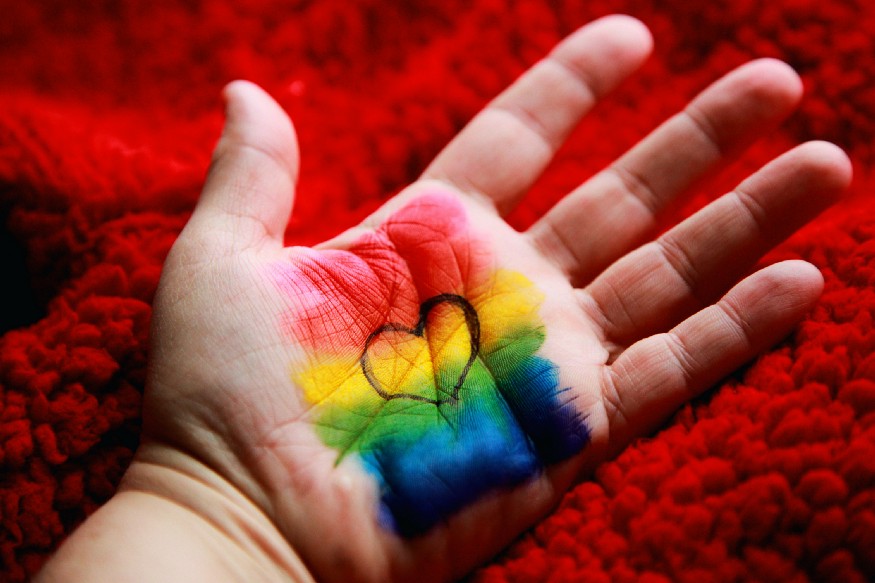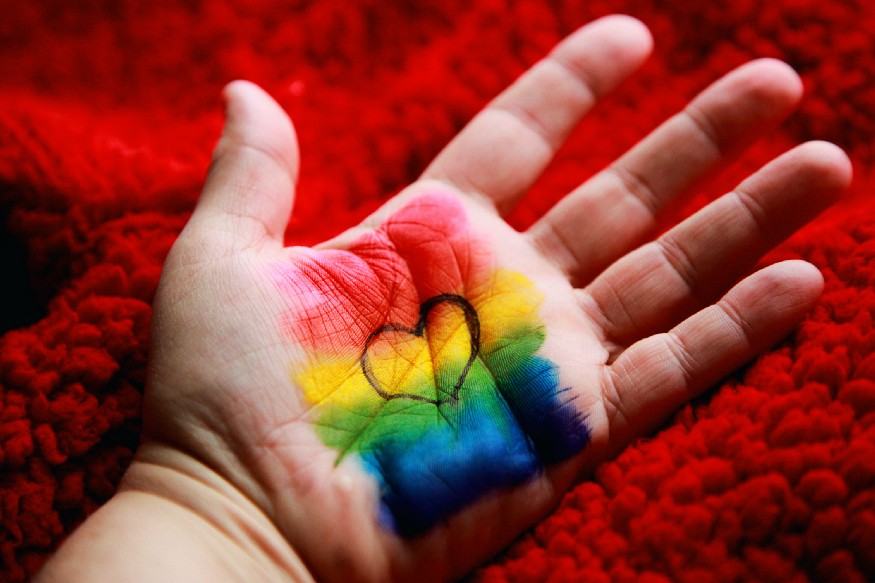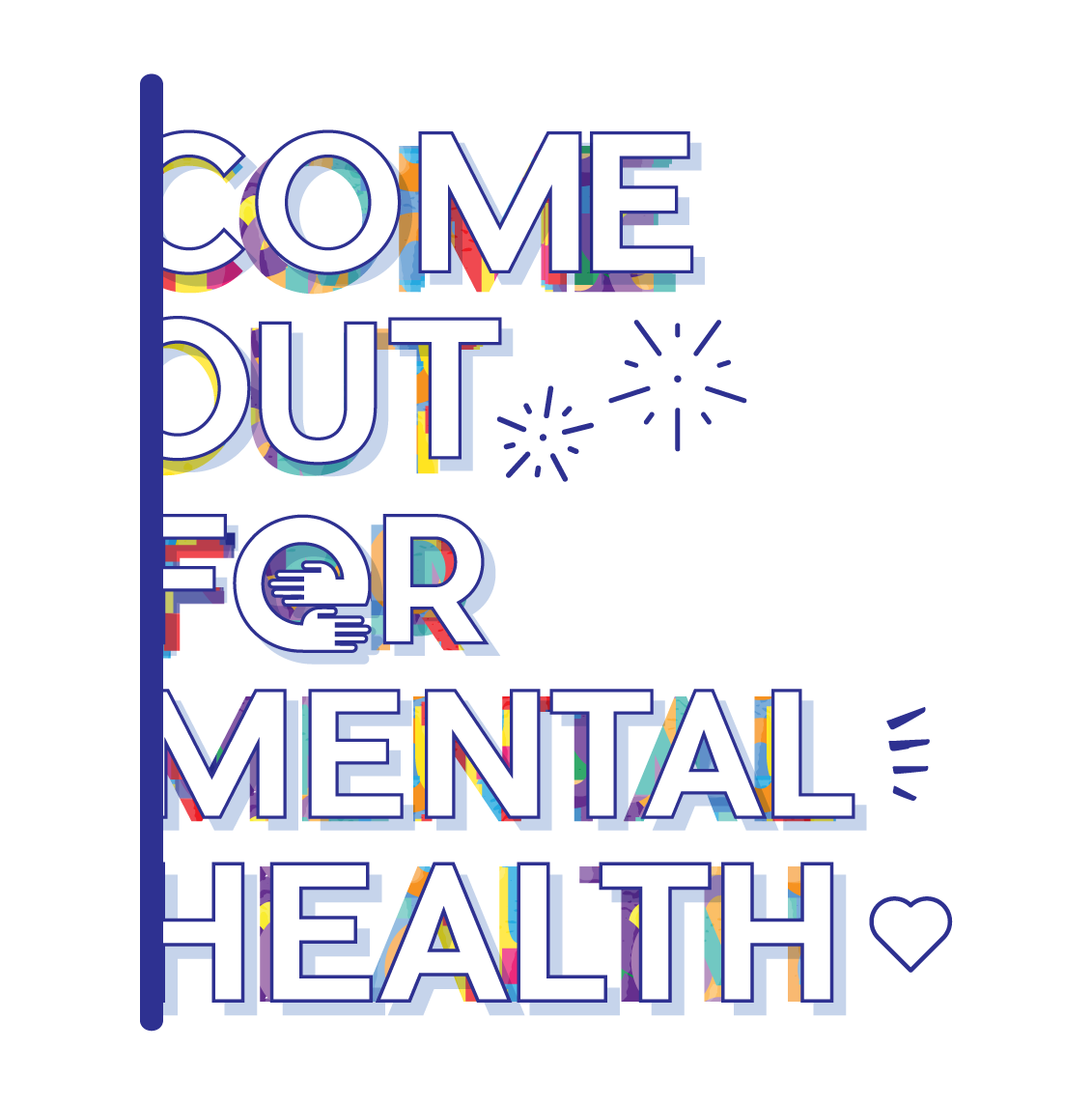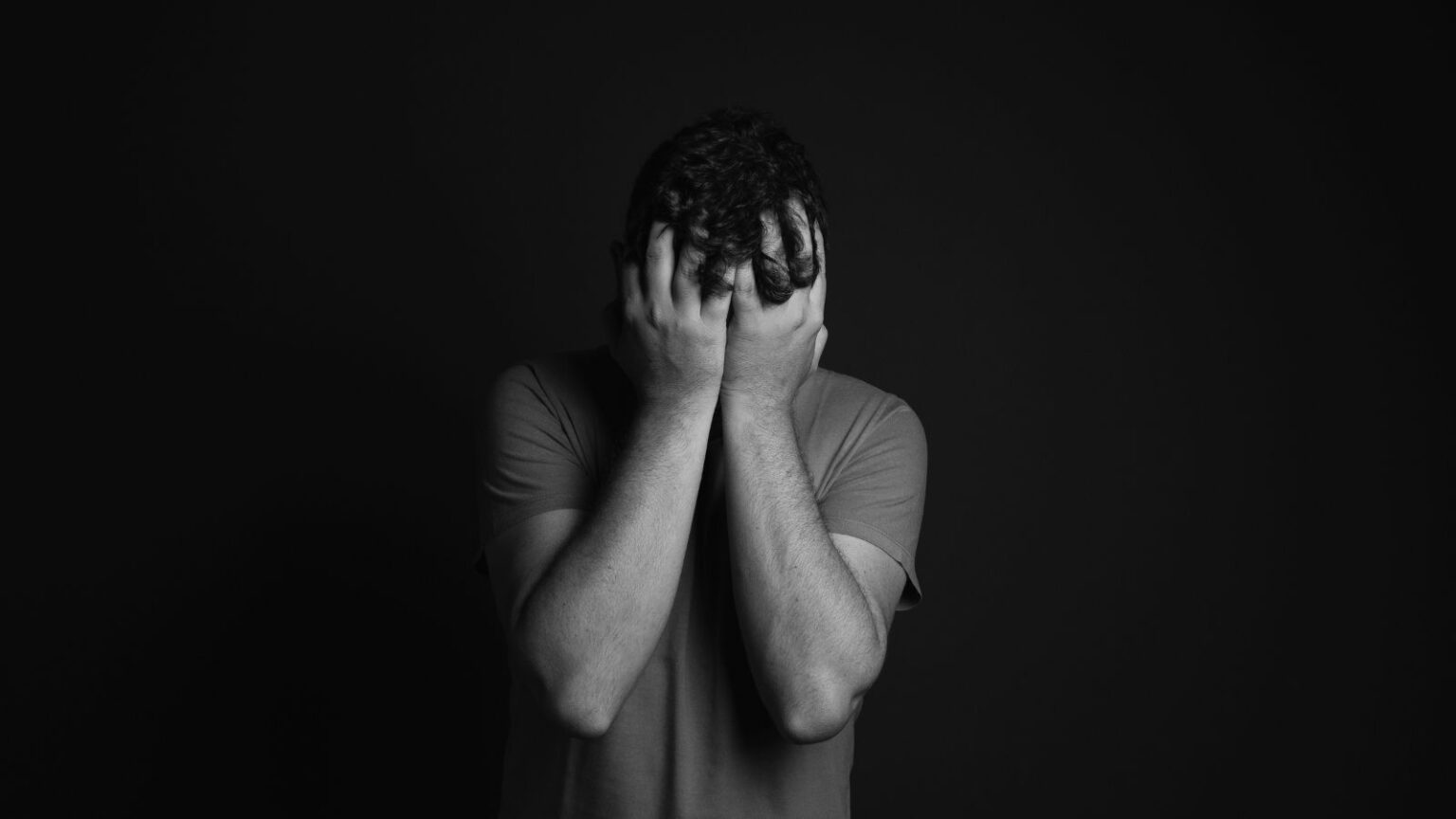How to build a fairer, healthier world during a global pandemic

On 7 April, in the midst of an ongoing global pandemic, we celebrated World Health Day with the motto: “Building a fairer, healthier world”. But to make this a reality the voices and needs of the most marginalised, including LGBTI people, must be front and centre. Here is how ILGA-Europe and the Nobody Left Outside initiative are working together to build on this vision.
The COVID-19 crisis has made it clear that nobody is safe until everybody is safe. Health and access to healthcare is one of the seven areas where COVID-19 has hugely impacted LGBTI people, organisations and communities in Europe and Central Asia. Although the corona virus does not discriminate, already marginalised groups have been hit harder by the pandemic and yet remain among the least protected. These vulnerable communities include LGBTI people as well as people experiencing homelessness, undocumented migrants, sex workers, people who use drugs and prisoners.
The Nobody Left Outside (NLO) initiative, with the participation of ILGA-Europe, is a collective of organisations representing some of the most marginalised communities in Europe, for whom access to healthcare is not straightforward. It aims to improve healthcare access for these people and calls on policy makers in the EU, at local and international levels, to take the following critical actions:
1. Establish a knowledge platform
Marginalised groups have specific and intricate healthcare needs. However, specific expertise, research and interventions are limited and scattered across Europe. The European Commission should support the establishment of an EU-level knowledge platform to compile and share research and best practices in healthcare access for marginalised, under-served groups. This should be led by academics active in the field, in close collaboration with civil society networks and organisations.
2. Train health and social care providers
Health and social care providers often lack suitable education to deal with the complex challenges faced by marginalised communities. The European Commission should support healthcare training and capacity building via the European Social Fund+. These programmes should include suitable training to educate and enable all staff providing services for marginalised communities and peer training. They should include training to avoid stigma and discrimination, and aim to reinforce collaboration between healthcare staff and community workers. An inspiring example is Health4LGBTI, an EU funded pilot project aiming at reducing health inequalities experienced by LGBTI people.
3. Implement the NLO Service Design Checklist
The NLO Service Design Checklist helps to design and deliver health and support services that are accessible to underserved and marginalised people. The European Commission should support a pilot programme to evaluate its implementation. You can download the NLO Service Design Checklist here.
4. Support Joint Action
International collaboration between academia, advocacy organisations and healthcare providers is key to driving improvements. EU Joint Actions aim to develop tools, methods and approaches and to build capacity through collaboration. Therefore, the European Commission should support a Joint Action to improve access to health and support services among marginalised and under-served communities, which should include the implementation of guidelines for monitoring and evaluation.
5. Support funding for research into access to cancer services
Some cancers are more common in marginalised groups or have worse outcomes due to delays in diagnosis and access to care. The Horizon Europe research programme mission on cancer should support funding for research to help improve access to cancer screening and care services among people in marginalised underserved communities.
6. Make health core to all policies
Healthcare should not be taken in isolation, but in connection to lifestyle, living conditions and other socio-economic determinants. The European Commission should further prioritise a coordinated approach and consider the impacts of health policies beyond the health sector, such as the Digital Single Market.
Mental Health: Dealing With Stress as an LGBTI activist

2020 has drastically altered our daily lives and as an activist it’s easy to put your mental health and wellbeing on the back burner, while you get on with other hugely pressing priorities. On top of this, LGBTI activists can suffer from particular mental health stresses that stream from discrimination, LGBTIphobia, and the uphill battle that working to secure our rights and equality can be. To mark World Mental Health Day, this blog brings you some tools to help you cope with challenges that come your way.
“A field that has rested gives a beautiful crop.” — Ovid
It’s been a remarkably arduous year for all of us on a global level, and considering that LGBTI communities can carry additional burdens, it’s especially important to take care of our mental health and wellbeing. Mental health, as defined by the World Health Organisation (WHO), is a state of well-being in which an individual realises their own abilities, can cope with the normal stresses of life, can work productively, and is able to make a contribution to their community. We can think that because we don’t have a particular mental health condition, that we are fine, but mental health is more than the absence of mental disorders.
The particular stresses on LGBTI activists
Stress is a totally natural reaction — it is the way our bodies respond to challenges in our environment. Having a certain amount of stress is positive as it can improve our motivation and effectiveness. Yet, intense and prolonged stressful situations affect our wellbeing. Here are some particular stresses that LGBTI activists face every day.
- Facing LGBTIphobia in both real life situations and on a daily informational basis
- Being overwhelmed by perceived and real barriers to positive change
- Being overwhelmed by negative news
- Being overwhelmed by too much work, often with no financial compensation
- Being overwhelmed by the perceived and real expectations of the community
Stress affects our body (physical reactions), it influences our mood (emotional responses), and it changes our behaviour. In the table below are the examples of different types of reactions that may arise.
How to effectively deal with stress
There is no universal solution to deal with stress, because:
- Stress is person specific — what stresses one person may not stress another person in a similar situation.
- Stress is time specific — what may stress one person at one point in time, it may not stress them at another time, sometimes because their experience mitigates it or the stress has become cumulative.
- Stress is context specific — having similar experiences in different contexts, for example, a context where you count on supportive relationships while another where you don’t, can fundamentally shift the experience of stress.
So, it stands to reason that dealing with stress is an individual thing. We need to identify the key factors of why and how we get stressed, and look at ways of changing them. For instance, how do you take care of your stress levels when going into a particular situation, say one of conflict with an anti-LGBTI group? What are the things you can put in place for yourself to manage the stress in that moment, such as breathing consciously or repeating a calming mantra in your mind? What are the ways your work as an LGBTI activist gets you stressed? If for instance, you can become overwhelmed by how much you are needed, how do you find ways to disengage for a moment so that you can tune into your stress levels? What are the self-compassionate breaks you can put in place for yourself on a daily basis that take you away from being overwhelmed? Activism is based in compassion for the human race, and you are part of that, so you need to be compassionate towards yourself as you do this work.
Stress is individually experienced, based on our own personalities and circumstances, but here are five universal elements for coping with stress in your daily life:
- Check how stressed you are: are there some signs of stress mentioned in the table above?
- Identify what is causing your stress — observe your daily routine and identify the triggers. It is important to know what is causing stress.
- Take care of the basics — try to eat healthy food, do some physical exercises, and have proper sleep.
- Make sure there is space in your daily routine for pleasant things: a walk in the park, a chat with a friend, cooking a meal — anything what brings you positive feelings.
- Talk to other people about your stress and ways to relieve it. You can talk to people you trust (friends, colleagues etc.) or you can appeal to the help of specialists / coaches / consultants. Currently there are plenty of people and organisations offering professional help on burn-out prevention.
Q&A with Mental Health Europe

As part of our Come Out for Mental Health campaign, we spoke to our friends at Mental Health Europe about some of the challenges that LGBTI people face and how that can affect their mental health.
Good practices: TENI

Thank you to TENI (Ireland) for sharing your good practices with us as part of the Come Out for Mental Health campaign!
“Our work on mental health has lots of different elements. When I think about TENI’s work with policymakers, it reminds me of the scaffolding you see when a house is being built. It’s not the finished product, but it is work that will provide a structure for future activities, work that is designed to have long-lasting positive effects.
All the ongoing training and conversations happening between TENI and policymakers, healthcare professionals or teachers might not be the most visible element of our work – but it does result in guidelines and increased understanding. It is positive that TENI have a good working relationship with the Health Service Executive (HSE – Ireland’s health service), School Managerial Boards, researchers and other key people and organisations that can facilitate the needs of the trans community. Tools like guidelines for general practitioners (GP’s) are what will make a huge difference to trans people, considering that trans people often experience anxiety when presenting at these services.
TENI are also very excited to be partnering with HSE to deliver Gender Identity Skills Training (GIST) which is due to begin soon. GIST will be evaluated, with the aim of offering this training to all healthcare providers in all regions of the Republic of Ireland.
TENI also provided training for staff in 47 post-primary schools and 17 primary schools in the the Republic of Ireland in 2016/2017 school year. In many ways, we are living in a different Ireland now… and that can only be a good thing for the mental health of trans people.”
– Vanessa Lacey, TENI Health & Education Manager, in conversation with Come Out for Mental Health
Good practices: Gayten-LGBT

Thank you to Gayten-LGBT (Serbia) for sharing your good practices with us as part of the Come Out for Mental Health campaign!
Good practices: Seta

Thank you to Seta (Finland) for sharing your good practices with us as part of the Come Out for Mental Health campaign!
Eveliina, a Finnish cross-dressing senior, found support and meaningful volunteer work as a spokesperson for Seta’s senior services.
She emphasises how important it is for mental health to be able to express one’s gender as they like in this lovely video from Seta:
Seta on inclusion, diversity and the mental health of LGBTIQ young people:
“The rainbow represents an open space for a variety of gender identities and sexual orientations but do we really embrace diversity? Young LGBTIQ people are exposed to rainbow normativity. If a young person can´t relate to certain one-sided norms (for example how LGBTIQ people should look) it may hinder or slow down the development of their identity.
We need to raise awareness about the diversity we have in our community. Peer support groups for LGBTIQ youth should establish common rules for respecting diversity. Let’s support all the shades between the colours in our rainbow!”
Come Out for Mental Health

ILGA-Europe want to come out for mental health.
There are a lot of reports, statistics and analysis out there on the mental health of LGBTI people… but talking about it still seems like a taboo subject.
ILGA-Europe want to remind our activists that there is so much love and potential support within the LGBTI communities. We can rely on each other when we experience mental health problems, but talking is the major first step.
Join our conversation as ILGA-Europe come out for mental health!
Blog post from Evelyne Paradis:
“Talking About LGBTI Mental Health – It Starts Now” – HuffPost UK, 10 October 2017
Suicidality among lesbian, gay, bisexual and transgender youth

Report by ILGA-Europe to the Social, Health and Family Affairs Committee of the Parliamentary Assembly of the Council of Europe